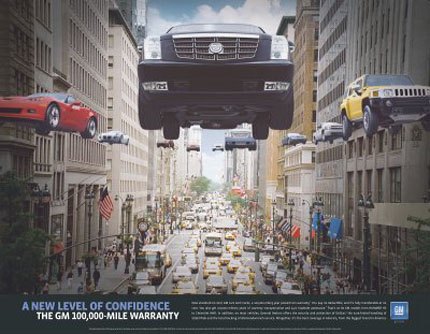Bailout Watch 470: Chrysler RIP, GM Headed for C11? [Download Federal Warrantee Commitment Program Here]
The Presidential Task Force on Automobiles (PTFOA) has seized control of Chrysler and GM, the latter more completely than the former. As part of their Monday manifesto, the PTFOA has laid the groundwork for Chrysler’s liquidation and GM’s entry into Chapter 11. They’ve created a new Warrantee Commitment Program that will guarantee Chrysler and GM vehicle purchases, even if (when) the automakers go belly-up. TTAC’s Ken Elias calls ChryCo’s final approach. “To do the Chrysler–Fiat deal, the secured bank lenders need to write off their loans. Why would they? They get more in a Chrysler liquidation. And even if they make a ‘deal’ with Fiat, so what? How does it solve the problems for the next several years before any Italian technology (small cars, small engines) shows up in Chrysler products? So Chrysler goes to liquidation.” As for GM, even the neophytes at the PTFOA know it can’t do what it needs to do outside of bankruptcy. Given that the automaker will now have the full backing of the federal government, controlling everything from car “warrantees” (warranty?) to the Board of Directors, why not? Who wouldn’t trust American Leyland?
More by Robert Farago


































Comments
Join the conversation
Interesting. Now I can purchase a new Chrysler with a lifetime powertrain warranty, AND have that warranty be backed by the government. Hello 30-year warranty coverage. If you do it right, you can even sell the car and keep the lifetime warranty in place FOREVER.
So does this mean we can continue to make shoddy cars, and the Govt will pick up the transmissions/intake manifold/etc issues that WE should have fixed ? sweeet ! GM didn’t make bad cars just because they were greedy or stupid, they made bad cars because they couldn’t afford to make good ones. Oh, they could make good ones if they wanted....it was cheaper to make shoddy ones, which once they passed warranty, were no longer a concern, and a motive to "buy a new one". This worked until Honda, et. al. came out with cars that would last 200k properly maintained. Suddenly the D3 car having major failures at 80k (but safely out of warranty) became unacceptable.